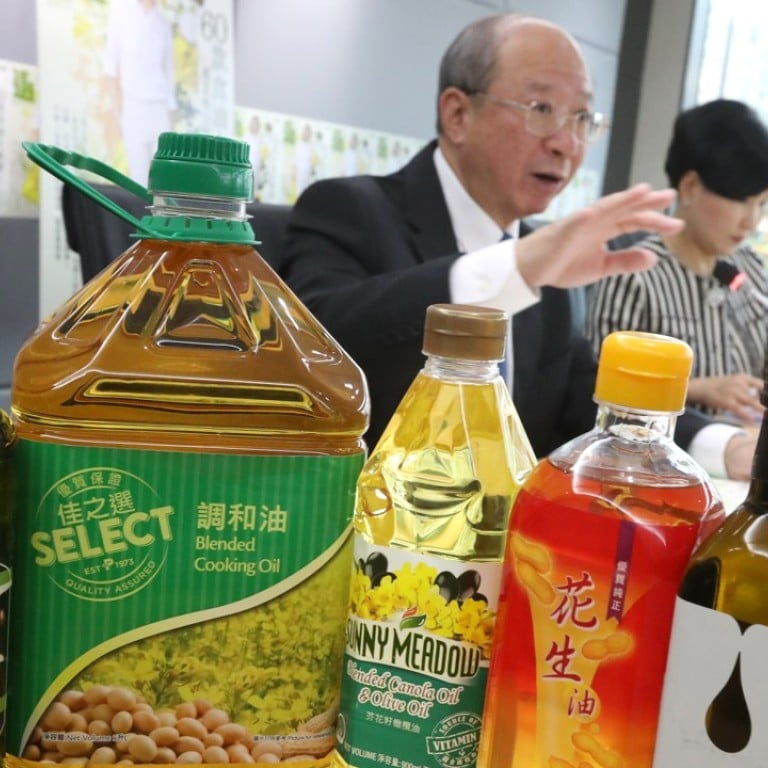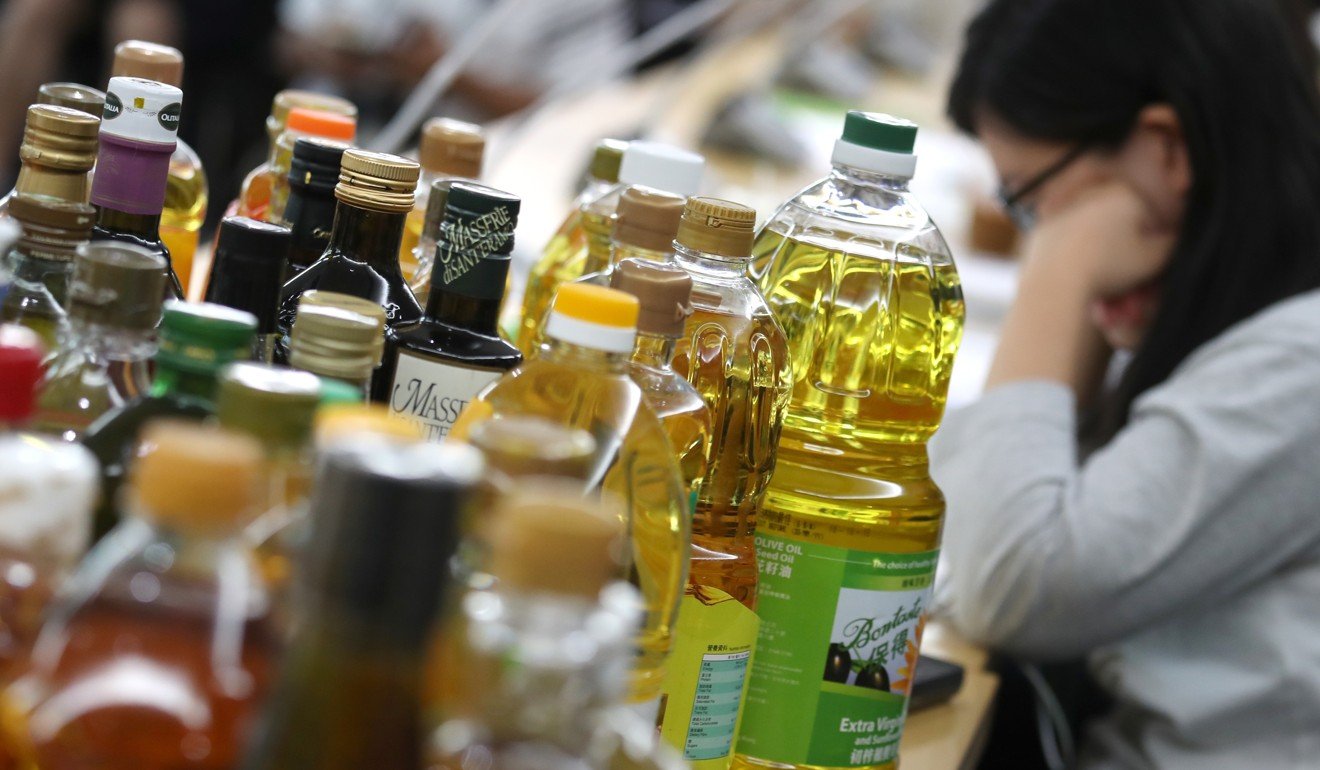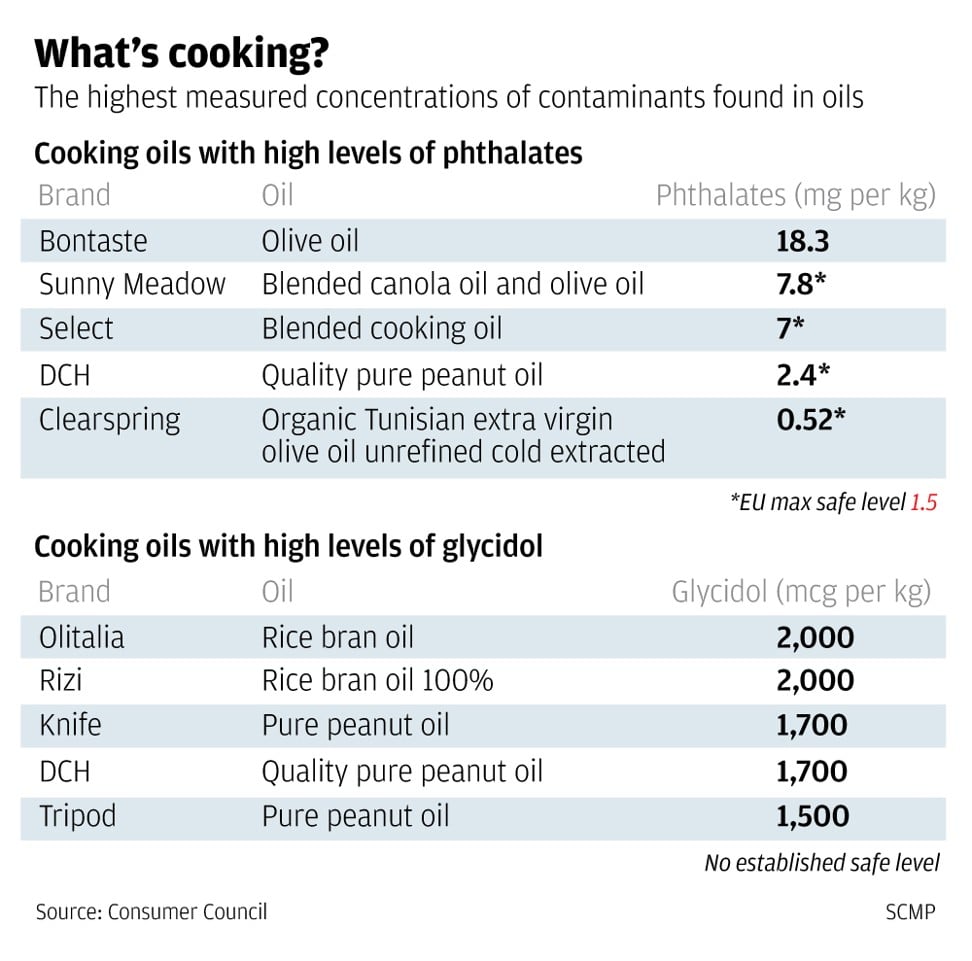
46 samples of cooking oil on sale in Hong Kong contained cancer-causing substance in tests
City’s consumer watchdog tested 60 types of oil and found 46 with toxic carcinogen glycidol, for which there are no safe levels
Hong Kong’s consumer watchdog has found more than 40 samples of cooking oil to contain contaminants and a cancer-causing substance.
The International Agency for Research on Cancer has classified glycidol as a Group 2A substance, or “probably carcinogenic to humans”. There are no safe levels set for it anywhere in the world.
“It is not a Group 1 toxin, which is considered to be very severe carcinogens ... but of course, it would be best not to have any carcinogens in the oils,” professor Terence Lau Lok-ting, convenor of Polytechnic University’s food safety consortium, said.
“Cooking oils are common ingredients, and can be consumed through different sources,” Professor Michael Hui King-man, chairman of the Consumer Council’s publicity and community relations committee, said.
“[Because of] the food safety risk, therefore, [this] cannot be taken lightly.”
The council also found 41 samples to contain phthalates – chemicals that act as a binding agent and make plastics more flexible.
Five samples were found to be above European Union safe levels.

According to several high-profile studies, phthalates which are consumed may act as endocrine disrupters.
Tests on laboratory animals have shown that long-term intake of the chemical can damage the development of reproductive systems.
The watchdog also found the contaminant 3-Monochloropropane (3-MCPD). High amounts of 3-MCPD may cause kidney and male reproductive damage.
Lau, of the food safety consortium, expressed surprised over the number of cooking oils containing contaminants. “I think the industry may not have paid a lot of attention to this issue.”
I think the industry may not have paid a lot of attention to this issue
Hui said the council had taken their findings to the Centre for Food Safety. The centre said a very large amount of oil would need to be consumed for an extended time period by customers before it affected their health.
According to the European Food Safety Authority, a person weighing 60kg can “tolerate” 3mg per day of di(2-ethylhexyl) phthalate, or DEHP.
The council tested oils including peanut, corn, canola, extra virgin olive, olive, sunflower, and blended oils.
It found misleading labelling on blended oils.
Labels on the front displayed a certain type of ingredient in large and bold font. But on the ingredients label, a different ingredient was the dominant one in the bottle.
Council CEO Gilly Wong Fung-han urged the industry to “take note” of the findings, or else “they could be in violation of the trade description ordinance”.
But the manufacturer of Knife objected to the release of the findings.
The company argued it was not in the public interest to publicise them and claimed the council should have consulted manufacturers about local and overseas standards before conducting the test.
An agent for Tripod, another company, expressed doubt over the findings, and maintained that their products were tested and found safe for consumption.
Agents for Olitalia and Rizi said their own tests showed lower carcinogenic chemical levels than those found by the watchdog. They added they would continue to monitor chemical levels in their products.
Clearspring did not respond to inquiries from the council, and DCH declined to comment.
The Post reached out to other suppliers for comment.
Additional reporting by Brian Wong


